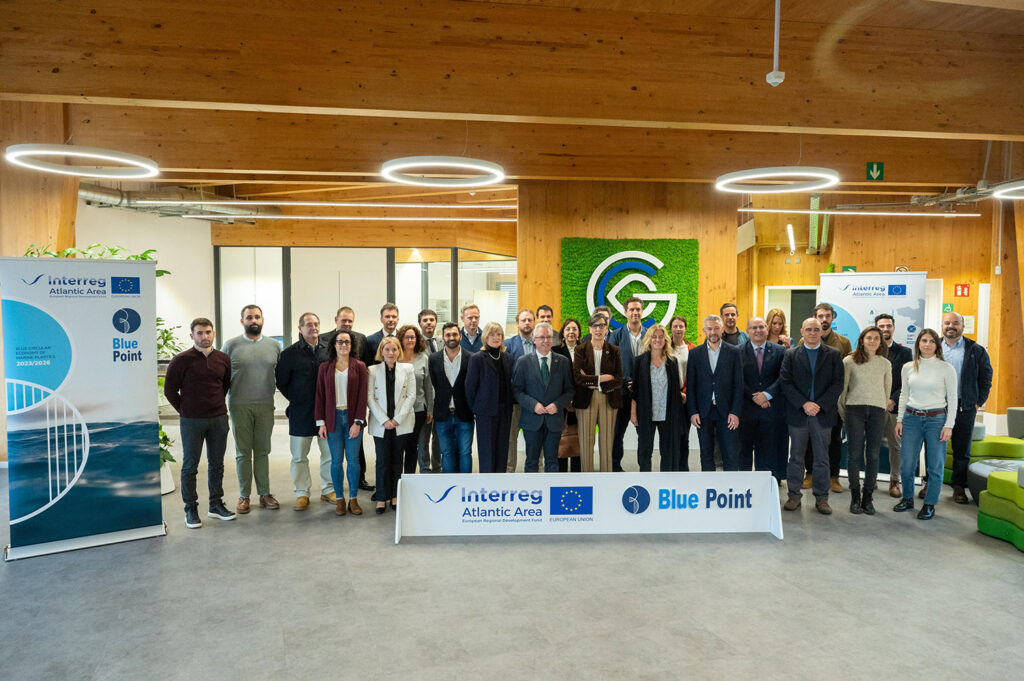BluePOINT

Project Title: Blue Circular Economy of Marine Plastics (BluePoint)
Funding body: Interreg
Duration: 36 M (01/12/2023-30/11/2026)
Coordinator:
Partners: here
UL Team: Gerard Dooly, Jose Alvarez, Matheus Santos, Petar Trslic
website: www.bluepointproject.eu
ABOUT
The BluePoint project seeks to establish a collaborative ecosystem involving multiple stakeholders to foster innovation, entrepreneurship, and international cooperation. Its goal is to capitalize on the marine plastic value chain and emerging business opportunities to establish a circular economy model in the Atlantic region. This initiative aims to reduce the environmental impact of marine plastic, create new business prospects (including accelerating over 25 companies), and propel the maritime sector towards a Blue Circular Economy. With a strong emphasis in market orientation, BluePoint will develop marketable solutions within the marine plastic value chain, thereby boosting entrepreneurial activity and fostering the creation of a new value chain centered on marine plastic recycling and the commercialization of products derived from marine plastic. To achieve this objective, the project will focus on developing technological solutions that address various aspects of the marine plastic value chain, including localization, recovery, sorting, and processing, ultimately leading to the creation of innovative marine plastic-based products.
OUR ROLE
downloads/gallery
UL will focus on utilizing drones for the identification of marine plastic, payload development, and processing images. The AI system we are creating will automatically detect plastics in various marine environments, including the sea, beaches, and riverbanks. This will be achieved through a range of payload sensors such as RGB, multispectral, thermal, and LiDAR imaging cameras. The algorithms powering this system will be trained using datasets representative of the Atlantic Area Region, with ongoing evaluation using additional collected data. Outputs from the system will include lists of GPS coordinates along with classifications and sizes of detected plastics. These lists can then be used by partners, local councils, or through citizen science initiatives to efficiently and comprehensively collect and manage plastics in marine environments.

